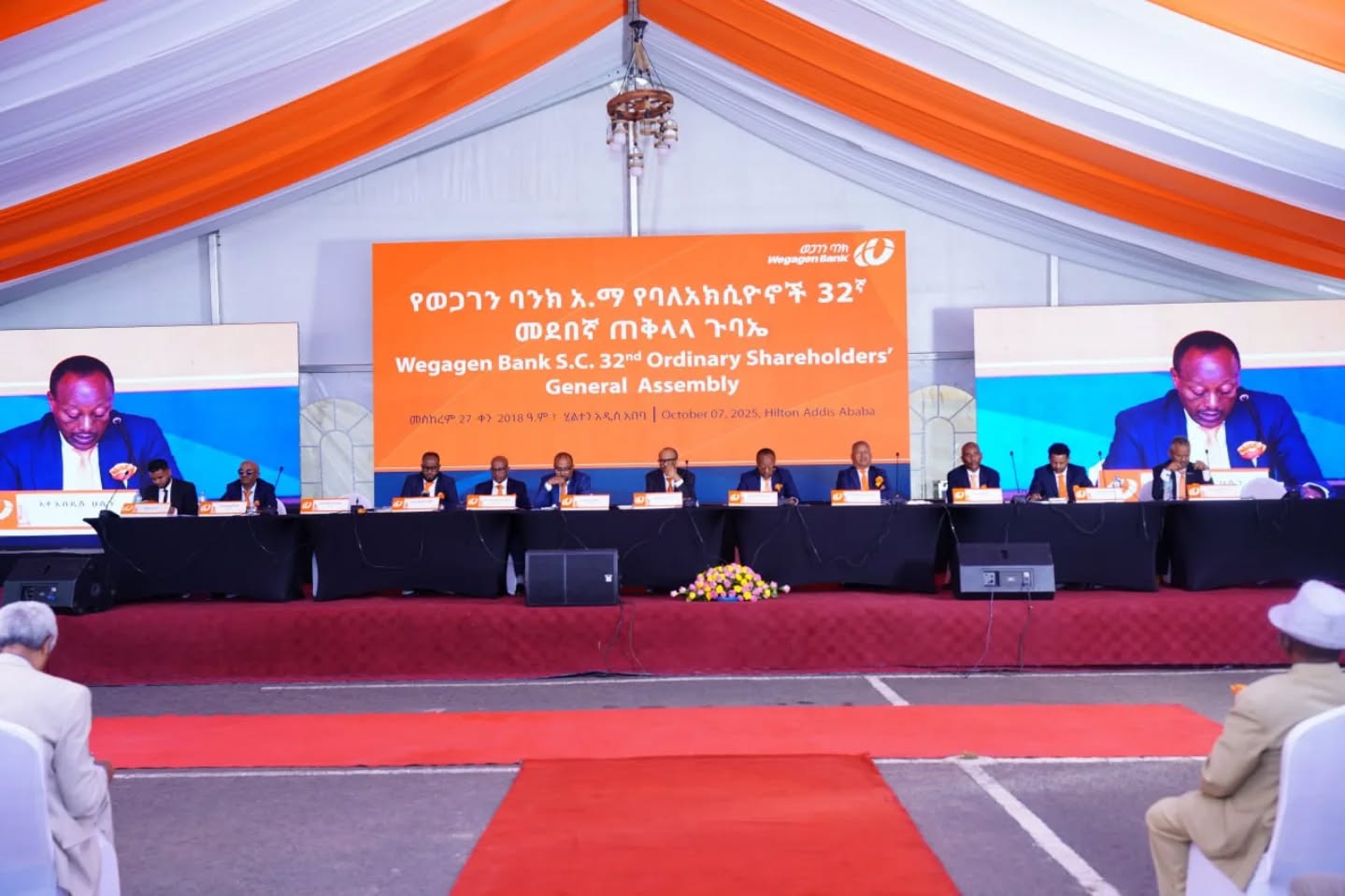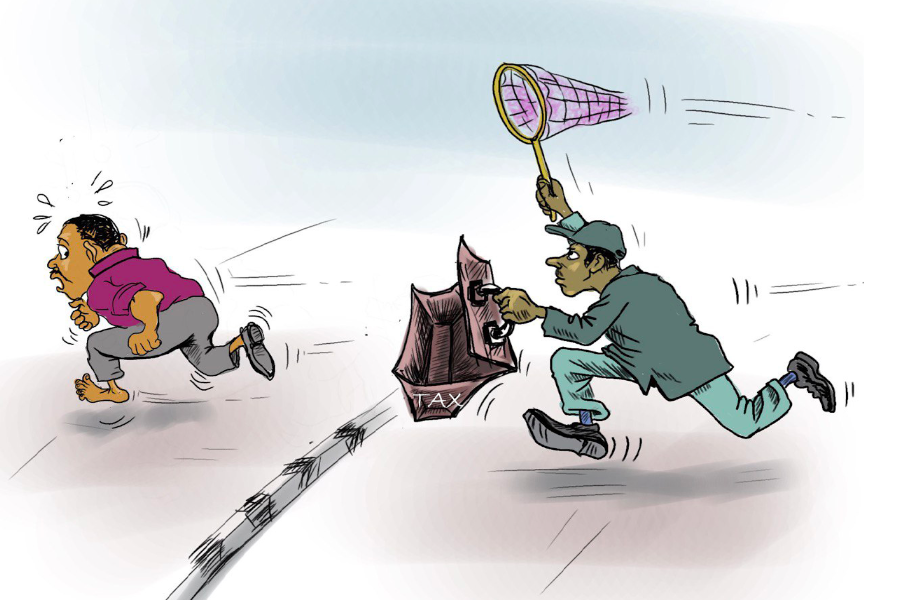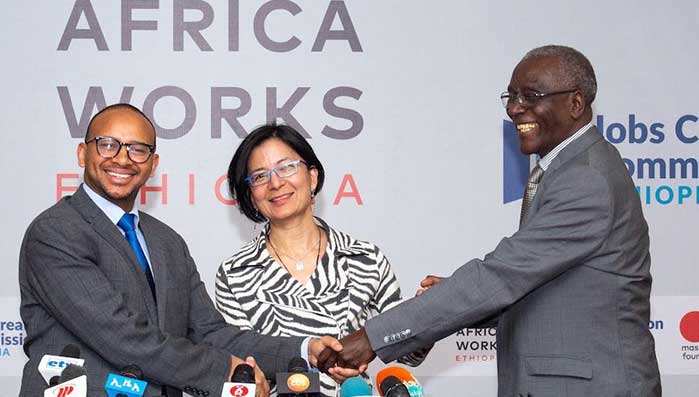
Despite the already battered economy due to the Novel Coronavirus (COVID-19), the government relies heavily on tax revenues and hopes to cover 57pc of the next federal budget from taxes.
Legislated unanimously in the presence of 345 MPs, the federal budget of the newly started fiscal year allocated 160.3 billion Br for capital spending and 133.3 billion Br for recurrent expenditures. Regional states will get 176.4 billion Br as subsidies. Out of the total budget of 476 billion Br, six billion Birr will go to finance the Sustainable Development Goals (SDG). This year’s budget is 23pc higher, in Birr terms, than the just-ended fiscal year.
The coming fiscal year capital expenditure shows a 22.6pc increase from the past fiscal year, an increase of 29.6 billion Br. Recurrent spending will also see a 23pc rise, 23.8 billion Br in absolute figures. Subsidies for regional states saw a considerable increase of 25.4pc with 35.6 billion Br more allocated in the budget.
In terms of foreign currency, the budget stands at 13.3 billion dollars, slightly lower than last fiscal year's budget of 13.4 billion dollars.
The new federal budget is very expansionary, according to Alemayehu Geda (PhD), a macroeconomist and a university professor with decades of experience, claiming that the budget did not factor in the adverse impact of the pandemic on the economy.
Alemayehu views the target for tax revenues as ambitious, predicting that domestic tax revenues collection could shrink by 18pc this coming fiscal year.
“This is due to a decline in external trade and economic activity in the country,” he said.
While the largest pie, 64pc of the budget, is covered by domestic revenues including taxes, 19.6pc of it will be covered through foreign assistance and loans. The domestic borrowing is expected to cover 78 billion Br of the budget.
Foreign aid and loans are expected to cover 9.5pc and 10.1pc of the budget, respectively, and domestic loans will finance 16.4pc of the budget.
In the first 10 months of the just ended fiscal year, the Ministry of Revenues collected 174.5 billion Br from domestic taxes out of the planned 244.8 billion Br in revenues, 71.3pc of the target.
During the session when the budget bill was legislated, Prime Minister Abiy Ahmed (PhD) said that the tax collection performance for the entire year would not exceed 200 billion Br, which is only 80pc of the targeted value.
However, Eyob Tekalign (PhD), state minister for Finance, begs to differ with Alemayehu's opinion, arguing that the tax revenue projection is attainable.
"It’s achievable, although it requires a lot of work and coordination,” he told Fortune. “We're working extensively on the administration side at the Ministry of Revenues and at Customs, both in infrastructural and customer centric projects."
The government is betting heavily on the newly instituted excise tax increase to boost tax collection as well as the Value Added Tax (VAT) Reform, which is up for revision in the coming fiscal year. Both seek to widen the base of tax collection by targeting those who normally do not pay income taxes.
“We aren’t pessimistic about the economy,” said Eyob.
But the government is not confident in corporate income taxes, estimated that it will collect 10.6 billion Br less than last fiscal year's projections.
Alemayehu argues this kind of ambitious projection will lead to the request of a supplementary budget, therefore increasing the budget deficit.
The approved federal budget estimates that the budget deficit will clock in at 125 billion Br, a spike of 28.3pc and 35.4 billion Br higher in absolute figures. During the just ended fiscal year, the government requested two rounds of supplementary budgets, one for the financing of the Homegrown Economic Reform Agenda and another to buffer the ongoing battle against the COVID-19 pandemic, 27.9 billion Br and 48.6 billion Br, respectively.
“In an effort to fill the budget gap, the government will opt for inflationary financing,” said Alemayehu.
The government is confident that treasury bills will be able to cover the budget deficit. By May of the last fiscal year, T-bill sales reached 20 billion Br with 5.1pc year-on-year growth.
“We expect to generate close to 50 billion Br from the sale of T-bills by the coming fiscal year,” said Eyob.
Experts anticipate that the budget deficit could lead the government to borrow money from the central bank, which will print cash to fill the gap, an exercise that directly increases the money supply and thus inflation.
In May headline inflation stood at 19.8pc, pushed up mainly by the spike in food prices that rose 20.3pc. The non-food inflation rate during May marked a 19.2pc rate.
Contrary to the current inflationary pressure in the country, the government plans to lower the headline inflation rate to 9.8pc and projects economic growth to reach 8.5pc, a figure that has piqued the doubts of experts.
“This is unachievable with the current uncertain economy and political instability,” said Alemayehu.
The expert estimates economic growth will contract by 11pc under the assumption the virus is contained by December.
“It’s a very critical year,” said Eyob. “Potential expenditures are focused on the production sectors; the economy needs stimulus and the economic reform we are following will thread in coordination."
"In the worst scenario where the government can’t meet the ballooning tax collection target," Eyob said, “we'll have to cut our expenditures.”
The pandemic has already trickled down to the economy. A total of 1.4 million jobs are threatened in manufacturing, construction and the service sector, while the hotel industry is on average losing 35 million dollars a month. FDI inflows fell from 4.1 billion dollars in 2017 to three billion dollars at the end of 2019.
The country is grappling with a high debt burden. The external debt stock stood at 27 billion dollars or 28.1pc of GDP and total debt at 54 billion dollars or 56pc of GDP last year, notwithstanding recent efforts by the government to restructure external debt among other complications.
“The government should come back to earth and reprioritise its expenses and focus on funneling resources to the mitigation of the virus as fast as possible," recommended Alemayehu.
PUBLISHED ON
Jul 13,2020 [ VOL
21 , NO
1055]

Editorial | Nov 23,2024

My Opinion | Jul 24,2021

Fortune News | Nov 02,2019

Fortune News | Feb 04,2023

Commentaries | Jan 04,2020

Dec 22 , 2024 . By TIZITA SHEWAFERAW
Charged with transforming colossal state-owned enterprises into modern and competitiv...

Aug 18 , 2024 . By AKSAH ITALO
Although predictable Yonas Zerihun's job in the ride-hailing service is not immune to...

Jul 28 , 2024 . By TIZITA SHEWAFERAW
Unhabitual, perhaps too many, Samuel Gebreyohannes, 38, used to occasionally enjoy a couple of beers at breakfast. However, he recently swit...

Jul 13 , 2024 . By AKSAH ITALO
Investors who rely on tractors, trucks, and field vehicles for commuting, transporting commodities, and f...

Oct 4 , 2025
Eyob Tekalegn (PhD) had been in the Governor's chair for only weeks when, on Septembe...

Sep 27 , 2025
Four years into an experiment with “shock therapy” in education, the national moo...

Sep 20 , 2025
Getachew Reda's return to the national stage was always going to stir attention. Once...

Sep 13 , 2025
At its launch in Nairobi two years ago, the Africa Climate Summit was billed as the f...